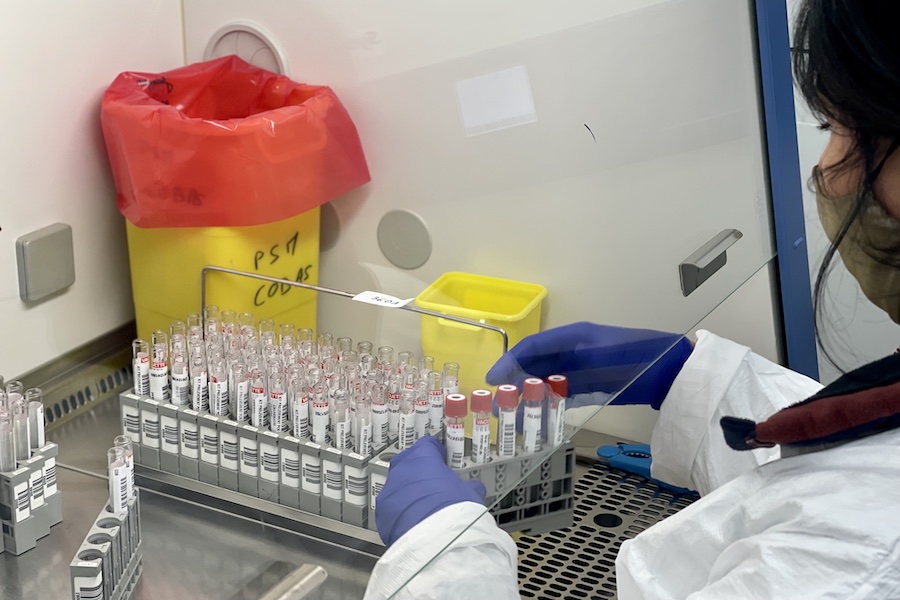Up to a thousand Covid tests a day are analysed in Monaco’s high security laboratory, where scientists are not only looking for positive cases but are intensely searching for new variants, of which there were 1,000 this month.
The Scientific Centre of Monaco (CSM) is renowned in the study of corals and the fight against paediatric cancer, but early in the pandemic, the CSM took on another vital, more immediate role. It became the testing centre for coronavirus in the Principality. By November 2020, Prince Albert was inaugurating a new biosafety level-three laboratory, allowing scientists to analyse highly contagious viruses and pathogens, namely Covid-19.
“There are only around 2,500 laboratories like this in the world,” Dr Christian Lavagna tells me inside the high-security lab. “P3 is the protective level that allows scientists to work with very pathogenic viruses or bacteria.”
Last month, the lab processed 13,168 PCR tests, 34% of which were positive for Covid-19 – a new record for Monaco.
In mid-January, amid the height of the fifth wave, the scientific centre analysed up to 3,500 tests in one week, effectively around a third of the population of Monaco.
In addition to keeping the government informed of the circulation rate of Covid in the Principality, the small team of six is also charged with detecting variants.
“We used to analyse the samples with classic methodology, a manual technique called QPCR. Fortunately, we have the possibility now to analyse variants automatically, which is easier for us and allows us to make a lot of analyses in one day,” reveals Dr Lavagna.
“During the month of January, we analysed and detected more than 1,000 variants. In Monaco, 98% of cases are the Omicron variant. We have a few remaining Delta variant, but it’s only about 1% now.”
Dr Lavagna says the new variant making headlines, the BA.2 subvariant of Omicron, is undoubtedly working its way through the population, however so far, it is difficult to detect in this lab.
“The BA.2 subvariant is very similar in terms of mutation with the Omicron one. We need to develop some tools to detect it, and we don’t have those just yet,” he says.
According to a new Denmark study, the subvariant is more transmissible than the common BA.1 subvariant of Omicron, and BA.2 has quickly become the dominant strain in that country.
Within a matter of months, the CSM will be equipped with a new sequencing laboratory that will allow the team to sequence Covid and other pathogens, thereby detecting new subvariants like BA.2.
“It is important to continue monitoring the evolution of this virus,” says Dr Lavagna. “Here in Monaco, a lot of people are tested, more than in France. Many of these people want to be tested often just to verify how they are and also to verify their serological state. It is very important to verify the serological protection of Monaco because, if a new variant appears, we can know if people are protected with enough antibodies and will have a good response against that new variant.”
Click play on the Instagram below to go inside the Covid-19 CSM P3 laboratory with Monaco Life…
https://www.instagram.com/p/CZcHxs3slbG/?utm_medium=copy_link
Photo by Cassandra Tanti, Monaco Life
